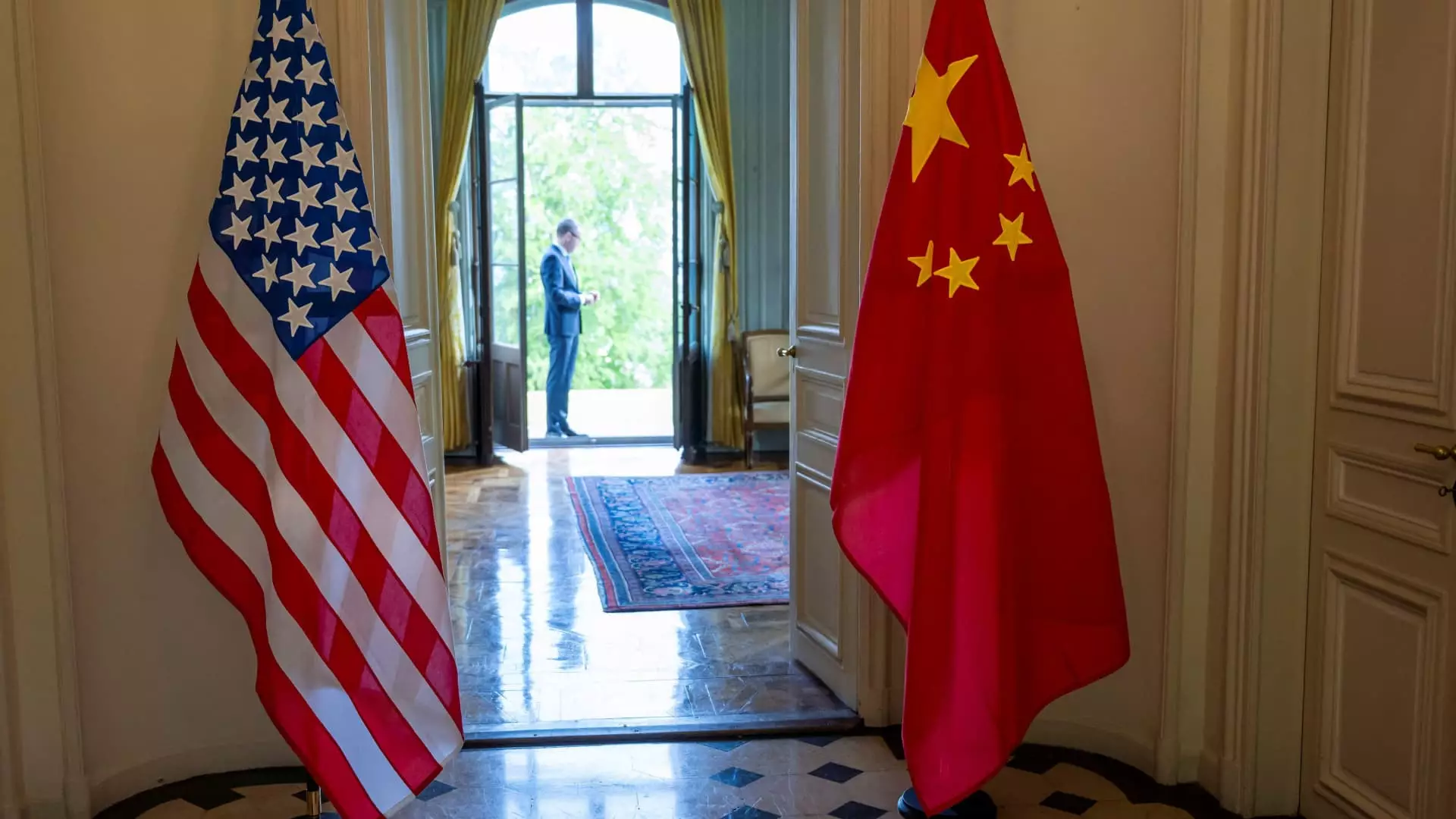The fragile state of U.S.-China trade relations hangs in the balance, underscored by recent comments from Treasury Secretary Scott Bessent. In a revealing Fox News interview, Bessent described the current negotiations as “a bit stalled,” invoking a sense of urgency that only comes when two colossal economies falter on their diplomatic pathway. His words carry an implicit warning: the need for higher-level engagement between President Trump and President Xi Jinping has never been more critical. Yet, whether this necessary dialogue will materialize remains uncertain, and the stakes couldn’t be higher.
The rapid escalation of trade tensions observed last month leaves us grappling with the potential repercussions of a prolonged stalemate. A temporary agreement struck in Switzerland to roll back tariffs defines a thin veneer of cooperation over an unstable foundation. Though the two nations managed to agree to pause tariff increases for 90 days, it hardly alleviates the underlying fractures in their relationship. In essence, we are merely postponing an inevitable reckoning in a world economy that relies on these two giants collaborating effectively.
The Impact of Technology and Resource Restrictions
One of the most striking points of contention lies in technology restrictions imposed by the U.S. on China. The implications are profound: not only do such actions jeopardize existing supply chains, but they also threaten to stifle technological advancement in both countries. In response to continued U.S. provocations, such as export controls on semiconductors, one can hardly blame China for pushing back. Their commitment to safeguarding their own technological sovereignty, especially informed by their reaction to U.S. policies, is understandable. The accusation of “wrong practices” from China reinforces this tension, situating the discourse firmly within a power struggle rather than collaborative diplomacy.
And what about rare earth elements? The expectation that China would ease control over these vital resources, crucial for tech manufacturing, has not materialized. Instead, their rhetoric has focused on maintaining these restrictions as a necessary maneuver to uphold international norms of world peace and regional stability. It’s a classic strategy of demonstrating strength in the face of external pressures.
Calls for High-Level Communication
The need for direct dialogue between Trump and Xi is imperative, but the climate surrounding such an interaction is fraught with uncertainty. When Trump expressed a desire to speak with Xi, the conditions seemed ripe but remained unreliable. Analysts suggest that China’s willingness to engage in talks hinges on the assurance that the U.S. won’t spring any unexpected surprises during their conversations. Clearly, the relationship is fraught with distrust.
Why does this matter? The absence of stable and open channels of communication not only jeopardizes economic stability but also risks escalating political tensions. The complexities of each leader’s position necessitate deft maneuvering, but reliance on sporadic phone calls is woefully inadequate. The global market cannot remain suspended in limbo while two heads of state decide whether their next interaction will bear fruit or merely provoke further division.
International Ramifications and Isolationism
The implications of this trade impasse extend beyond U.S.-China relations and reverberate worldwide. Recent moves by the U.S. to revoke visas for Chinese students signal a troubling trend towards isolationism. This governmental action, characterized as “fully unjustified” by Chinese authorities, demonstrates a growing chasm that risks further alienating the U.S. from its most significant global adversary.
The response to such actions should be alarming for those who champion international collaboration. In an increasingly interconnected world, retreating into tribalism—be it through trade barriers or visa restrictions—does little to foster peace or understanding. Instead, it perpetuates a cycle of hostility. As both nations dig in their heels, the prospect of cultivating genuine diplomatic solutions appears increasingly elusive.
We are confronted with a critical moment in global economics and politics. A failure to resolve these issues not only hampers U.S.-China relations but threatens to unravel the very fabric of a collaborative global economy. The stakes are high, and indifference will only breed greater conflict. The time for clear communication, reciprocal understanding, and progressive action is now—before it’s too late.


Leave a Reply